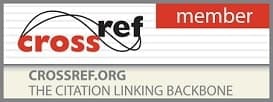- Printed Journal
- Indexed Journal
- Refereed Journal
- Peer Reviewed Journal
P-ISSN: 2394-1685 | E-ISSN: 2394-1693 | CODEN: IJPEJB
Impact Factor (RJIF): 5.38
2016, Vol. 3, Issue 4, Part C
Efficacy of progressive relaxation training on anxiety of adolescents
Author(s): Jaswinder Kaur
Abstract:
Introduction: Anxiety is a usual human emotion; everyone feels uneasy or worried at times. Anxiety rouses you to action. It gears you up to face a threatening situation. And it needs to be recognized that whether an event is perceived to be significant stressful depends on an individual’s ability to cope with stress and interpretation of the event as stressful. Everyone go through various phases of stress period in his life. Often, adolescents suffer a unique pattern of stressful conditions of anxiety. Adolescence is a developmental period characterized by maturation across multiple domains. One of area is relaxation methods, by which the tension and anxiety level could be reduced; will power and various other psychological improvements can be brought. Progressive Relaxation Training is a remarkable way to conquer and overcome stress, anxiety and various other psychological factors that affect the well-being of any adolescent. In 1930 Edmund Jacobson trusted that if people can acquire to relax their muscle through an exact technique mental relaxation will follow. It includes straining and relaxing different voluntary muscle groups throughout the body in an arranged succession.
Methodology: An experimental design was selected to investigate the effect of Progressive Relaxation Training on the Anxiety of adolescents. A simple random group design was adopted for this study as it seemed the most appropriate one. The study was conducted on 60 male school adolescents of 16-19 years of age, studying in grades IX to XII. The subjects were divided into two groups namely, Experimental Group (N=30) and Control Group (N=30). The relaxation training program given to experimental group last for six (06) weeks comprising eighteen sessions total which includes three sessions per week on alternate days i.e. Monday, Wednesday and Friday. Each session was of 45 minutes for experimental group. However no relaxation technique was given to the control group. Significance of difference between pre-test and post-test was obtained by applying ‘t’ test. Selected variable i.e. Anxiety (State & Trait) was selected for the study and State and Trait Anxiety Inventory constructed and standardized by Pal and Tiwari (1970) [13] was selected and used to measure Anxiety (State & Trait).
Results: Mean, Mean Difference, Standard Deviation and ‘t’ value of the pre and post-test for experimental group was compared with the tabulated significant value at 0.05 level of confidence with 95 degree of freedom. The mean post test scores of EG and CG on Anxiety (State) was recorded as 51.87 and 54.33 respectively. And SD post-test scores of EG and CG were 4.10 and 3.71 respectively. There mean difference was -2.46 with t-value 2.4368. Whereas, the mean post test scores of EG and CG on Anxiety (Trait) was recorded as 58.87 and 60.33 respectively. And SD post-test scores of EG and CG were 3.14 and 2.67 respectively. There mean difference was -1.46 with t-value 1.9402. As per statistical analysis these differences was considered as significant in respect of Anxiety (State) but insignificant in the variable Anxiety (Trait).
Conclusion: On the bases of results, the hypothesis, ‘Progressive Relaxation Training will have significant effect on the Anxiety of adolescents’ is partially accepted. It implies that PRT has significant effect on the Anxiety (State) of the adolescent.
Pages: 144-148 | 1596 Views 159 Downloads
Download Full Article: Click Here

How to cite this article:
Jaswinder Kaur. Efficacy of progressive relaxation training on anxiety of adolescents. Int J Phys Educ Sports Health 2016;3(4):144-148.








 Research Journals
Research Journals